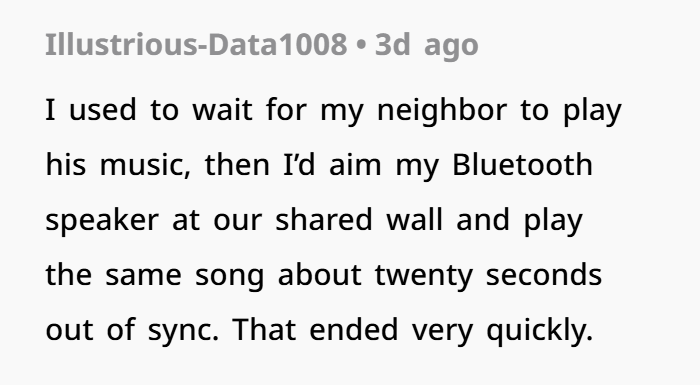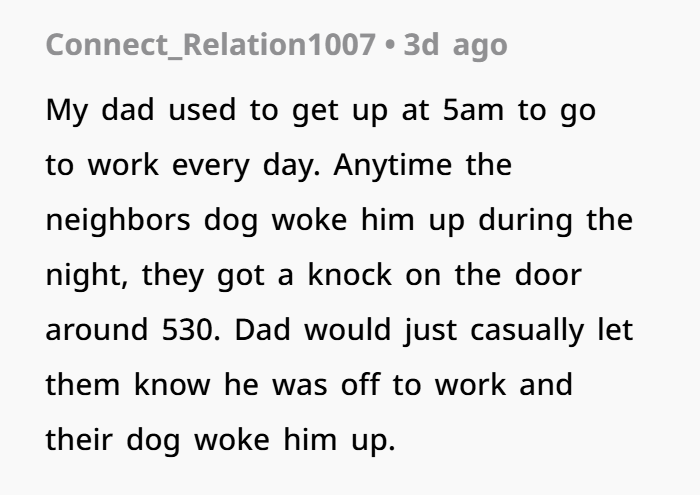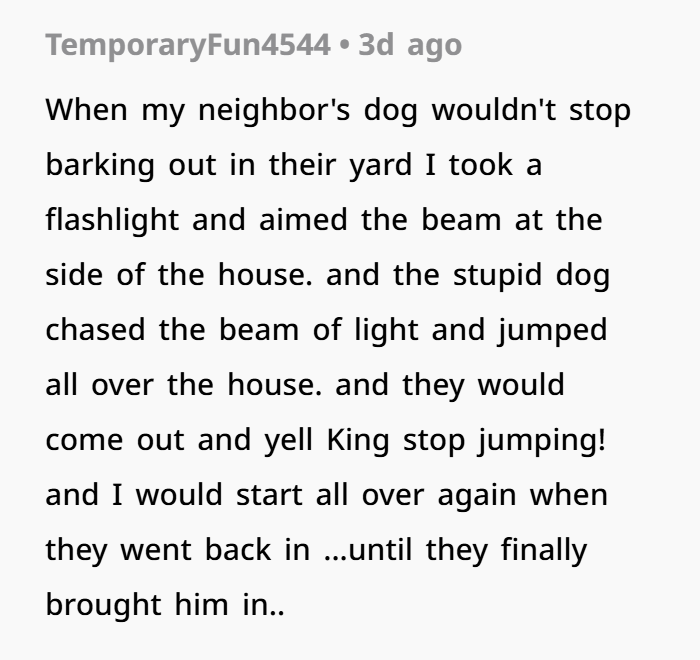Neighbor’s Barking Dog Ruined My Sleep, So I Used It to Ruin His
In this story of passive-aggressive revenge with a clever twist, the narrator recounts their escalating frustration with a neighbor’s relentlessly barking dog. Every night from midnight to 3AM, the peace of the household was shattered by loud, echoing barks, leading to serious sleep deprivation. Despite polite attempts to address the issue with the neighbor, who smugly dismissed the complaints by saying the dog was “just doing his job,” no action was taken. Instead of escalating with confrontation or official complaints, the narrator chose a more creative and non-confrontational route.
Using simple technology, the narrator recorded the dog’s barking and then, early each morning after the neighbor returned from his night shift, played it back at full volume through a speaker directed at the shared wall. This gave the neighbor a direct experience of what his dog was inflicting on others. Within just two days of this subtle protest, the neighbor began bringing the dog inside earlier in the evening, and the barking ceased altogether. The story highlights how sometimes the most effective form of justice is one that mirrors the offense in a way that can’t be ignored.
It can be irritating to live next to someone with a dog that barks incessantly during odd hours

For this homeowner, the neighbor’s dog barked nonstop during the wee hours of the morning
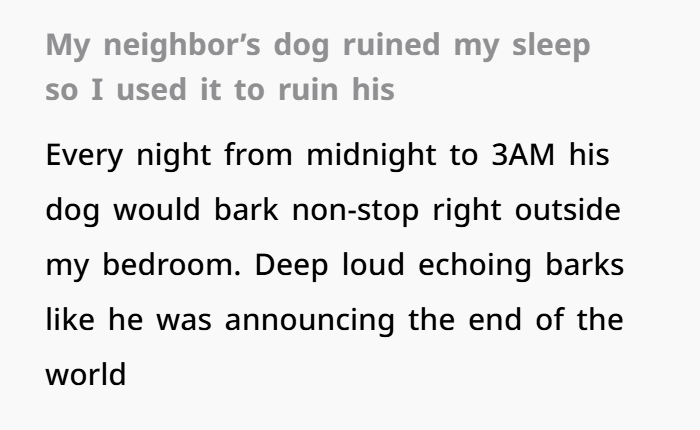
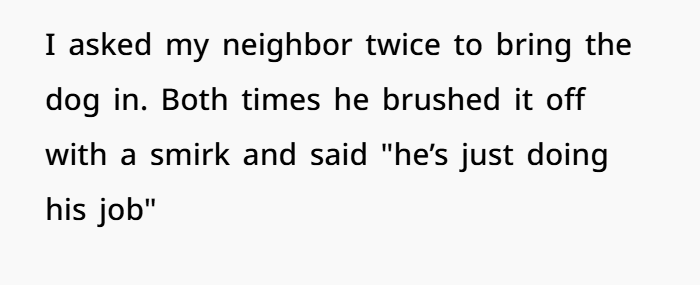
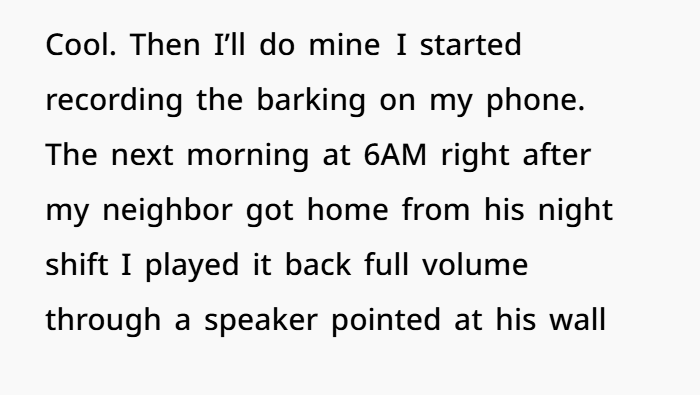
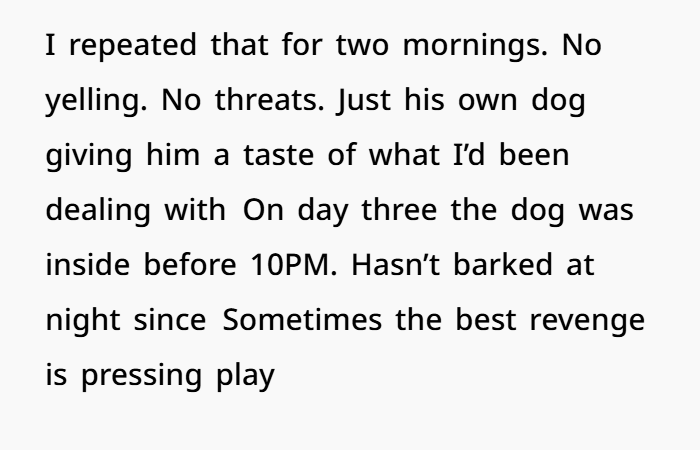
Noise Complaints, Legal Context, and Social Dynamics
Noise disturbances caused by pets are among the most common neighbor disputes in residential areas. Most municipalities have local noise ordinances that set quiet hours—often between 10 PM and 7 AM—during which excessive noise, including barking, is prohibited. While local enforcement varies, repeated violations can lead to fines, citations, or in extreme cases, animal control intervention.
What makes this story especially noteworthy is the narrator’s decision to handle the issue without escalating to legal or formal channels. Legally, they would have been well within their rights to file a formal complaint with animal control or a civil noise complaint through their local housing authority. However, those routes can strain neighbor relationships and take time to resolve. Instead, this approach falls under non-confrontational retaliation, a psychological tactic akin to “mirroring”—giving someone the direct experience of their own behavior in hopes of prompting empathy or change.

This strategy also skirts the edge of legality. Depending on local ordinances, playing loud sounds early in the morning could itself constitute a noise violation. However, the brief, targeted nature of the playback—and its cessation once the behavior changed—likely places it in a gray area that would be hard to penalize.
More broadly, this story illustrates the principle of reciprocal justice, where the offending party is made to feel the consequences of their actions in a controlled, proportional way. It’s a brilliant reminder that empathy can sometimes be enforced through experience rather than argument—and that sometimes, the best revenge is as simple as hitting “play.”
Commenters lauded the author’s petty revenge plot, and some shared similar experiences



